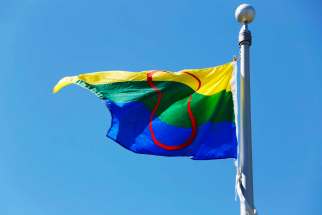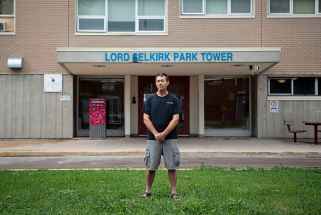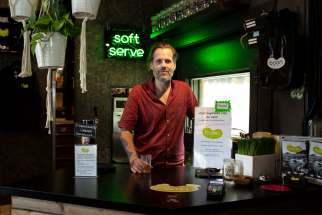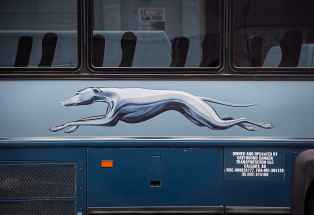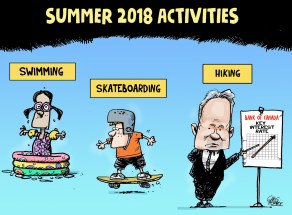Need a ride to a just society? Make sure you’ve got $10 in your pocket
Read this article for free:
or
Already have an account? Log in here »
To continue reading, please subscribe:
Monthly Digital Subscription
$0 for the first 4 weeks*
- Enjoy unlimited reading on winnipegfreepress.com
- Read the E-Edition, our digital replica newspaper
- Access News Break, our award-winning app
- Play interactive puzzles
*No charge for 4 weeks then price increases to the regular rate of $19.00 plus GST every four weeks. Offer available to new and qualified returning subscribers only. Cancel any time.
Monthly Digital Subscription
$4.75/week*
- Enjoy unlimited reading on winnipegfreepress.com
- Read the E-Edition, our digital replica newspaper
- Access News Break, our award-winning app
- Play interactive puzzles
*Billed as $19 plus GST every four weeks. Cancel any time.
To continue reading, please subscribe:
Add Free Press access to your Brandon Sun subscription for only an additional
$1 for the first 4 weeks*
*Your next subscription payment will increase by $1.00 and you will be charged $16.99 plus GST for four weeks. After four weeks, your payment will increase to $23.99 plus GST every four weeks.
Read unlimited articles for free today:
or
Already have an account? Log in here »
Hey there, time traveller!
This article was published 13/07/2018 (2705 days ago), so information in it may no longer be current.
Angela Gladue, an Indigenous dancer in town to perform at the Winnipeg Folk Festival, jumped in a taxi downtown Monday night.
She was frightened by a strange man following her, a truth many women — especially Indigenous women — face.
The taxi driver demanded $10 before he would drive. Ten bucks.
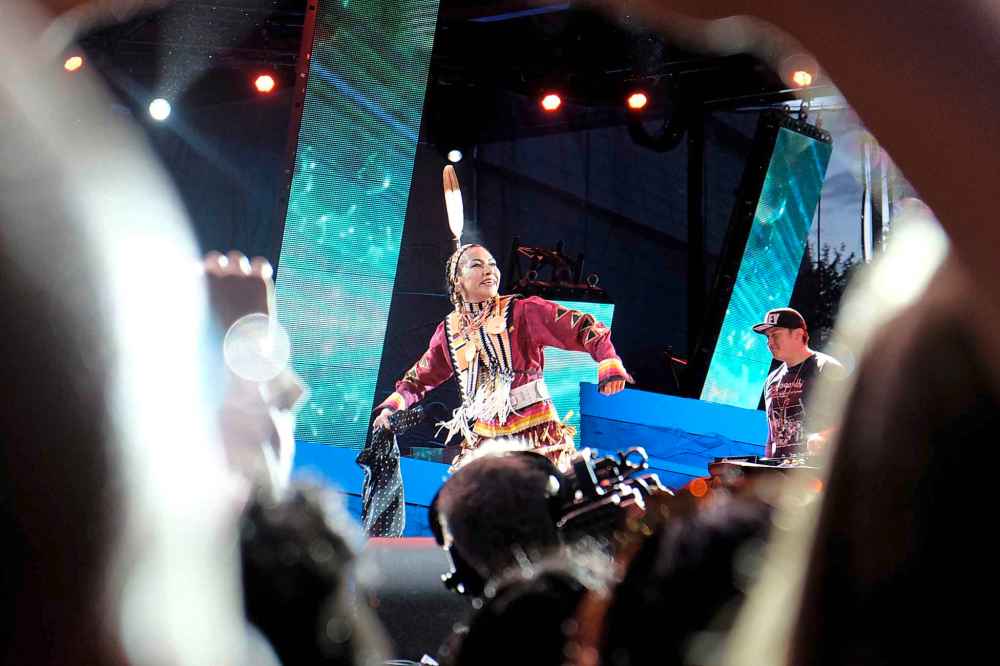
Incredulous, Gladue argued with the driver for a moment. He refused to move without money. Aghast, Gladue got out, uncertain if her safety was going to be at risk. She arrived at her hotel safe, but only after having to convince another cabbie to drive her the four blocks.
Stories of racism in Winnipeg’s taxi industry are everywhere. I have a few myself.
Yet, taxis are an essential service.
It was also Monday that Greyhound Canada announced it was cancelling all bus routes in northwestern Ontario, Manitoba, Saskatchewan, Alberta and virtually all routes in British Columbia as of Oct. 31. This decision impacts more then 400 communities — most of them northern and Indigenous.
If you don’t have a car or access to a plane in these places, you’re not going far. You have family you want to visit? Too bad. A health issue? Good luck.
The company claimed a 41 per cent drop in riders since 2010, and unsustainable routes. This came as Greyhound’s parent subsidiary, FirstGroup PLC, reported 2017 profits of $32.8 million.
The cuts came after the recent Interim report of the National Inquiry into Missing and Murdered Indigenous Women and Girls called for “more frequent and accessible transportation services” for Indigenous females to escape violence or travel safely home.
Cutting transit services means the reckless endangerment of lives.
Pamela Palmater, in a piece for Maclean’s magazine, calls the Greyhound cuts a “public safety crisis” that exacerbates issues Indigenous communities face with the child-welfare, justice and health-care systems. She cites Churchill’s damaged rail line as an example of what happens when you cut off a community: a huge increase in poverty, unemployment and cost of living.
In case it isn’t crystal clear, profit comes at the cost of people. And in these cases, Indigenous peoples.
A central obsession with profit is what’s ending Winnipeg co-op Neechi Commons, where its board attempted to create a social enterprise, not an extractive monopoly. Neechi was an attempt to build a community, not a group of haves and have-nots.
This is also happening at Thunderbird House, where the board chose to invest in building people, not grant-writers. Even now, as the Winnipeg building is falling apart and on life support, volunteers fight to keep the place running.
It doesn’t take an economist to know companies and businesses invest in shareholders, not people. Corporations can put out as many shiny pamphlets and websites they like, but when it comes to profit, the marginalized always lose out.
Some companies do good community-building work. It’s just that the private sector looks out for, well… the private sector.
It’s the role of governments to ensure people live in a fair society.
Transportation – particularly in issues involving health and safety – is a human right.
Allowing Indigenous and northern communities access to transportation is something we all should pay for. Well, if we are to live according to Canadian law, anyways.
Look at health care. We pay for that.
Why? Because it’s a human right. Some might say a Canadian value.
Many are calling for Greyhound’s licence to be revoked or, at least, reviewed. (The bus company will continue operations in Quebec and eastern Ontario.) The unilateral decision to deny essential services to citizens probably should be talked about.
The idea of a government-run, national bus service in Canada is possible but seems unwieldy, bureaucratic and pricey. Such an effort was made with the Saskatchewan Transportation Company, but later cut due to low ridership, cost-effectiveness and a lack of profits.
Maybe governments and the private industry aren’t all that different after all.
The solution may be found somewhere else.
Maybe governments and the private industry aren’t all that different after all.
The solution may be found somewhere else.
In 2016, Ikwe Safe Ride was started by community members concerned about women’s safety in cabs. Any woman in Winnipeg can apply and ask for a ride.
By April 2018, the service had provided more than 46,000 rides, by dozens of volunteers.
The cost for this service is pretty straightforward: people. The benefit is safer families, safer communities and a better place for us to live.
This was a solution invented by visionary people who refused to let profit and exploitation get in their way. By leaders who chose community.
The solutions to so many of our challenges are evident, and they are worth us demanding more of government and putting our own dollars towards.
They’re right in front of us. Neechi. Thunderbird House. Maybe even in a project where Indigenous and northern communities run their own transit services.
People are worth investing in.
Racism is cheap; about $10, in fact.
The cost of it all is much more.
niigaan.sinclair@freepress.mb.ca

Niigaan Sinclair is Anishinaabe and is a columnist at the Winnipeg Free Press.
Our newsroom depends on a growing audience of readers to power our journalism. If you are not a paid reader, please consider becoming a subscriber.
Our newsroom depends on its audience of readers to power our journalism. Thank you for your support.



